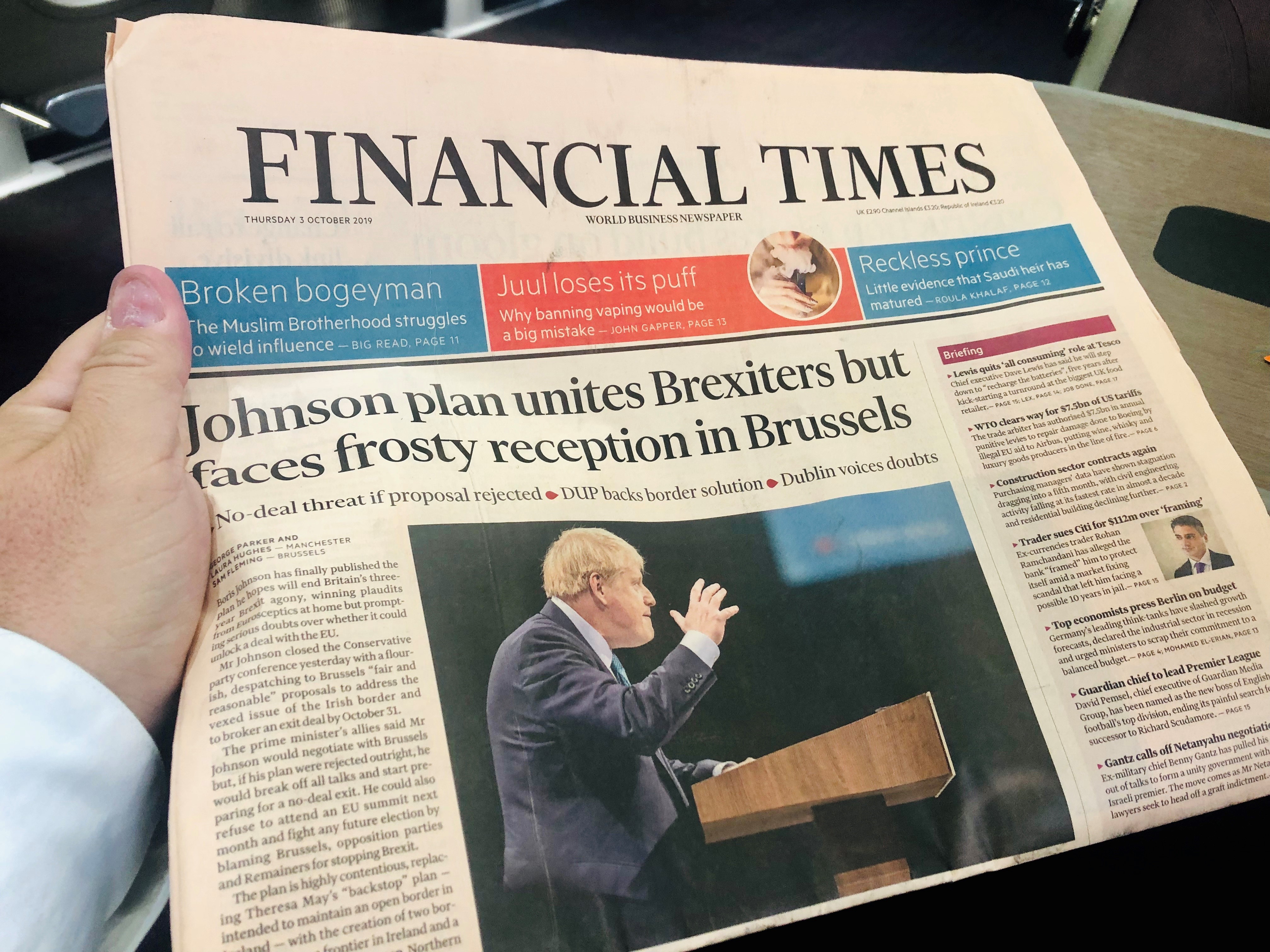What does Boris Johnson's proposal mean from a Customs perspective?
It is 27 days to the date when the United Kingdom by default leaves the European Union if there is not a new withdrawal agreement or a request for another delay of article 50 approved by both parties.
This week the UK Prime Minister Boris Johnson has presented a new proposal for negotiations of an updated withdrawal agreement. The proposals were sent as a letter to President Jean-Claude Juncker earlier this week.

The proposal aims to replace the backstop with alternative arrangements and to craft a revised Withdrawal Agreement that can be agreed with European Union and be approved by a majority of the House of Commons to avoid a no-deal Brexit on October 31st.
Under the parole “Get Brexit done”, Mr Johnson sent his Brexit plan to Brussels labelling it a “fair and reasonable compromise”.
The reactions in the UK, Brussels and Dublin have been mixed, from cold to acknowledgement of progress.

While some have dismissed the proposal, the EU stated that ”President Juncker welcomed Prime Minister Johnson’s determination to advance the talks ahead of the October European Council and make progress towards a deal. He acknowledged the positive advances, notably with regards to the full regulatory alignment for all goods and the control of goods entering Northern Ireland from Great Britain" and the EU negotiator Michel Barnier noted that ”...there is progress". Dublin has sounded less impressed and has reacted more negatively so far.
There are now only eight days left to negotiate a deal based on this proposal, before the EU Council meeting on October 17, indeed a very short time. However, if there is a real political will it could be possible.
While many doubters say that the time is too short, I am convinced that if the common end goal now is to create a state-of-the-art Free Trade Agreement for 2021, then history shows more difficult legal situations have been solved and more complicated legal texts have been drafted in considerably less time than is available here and now for Brexit. As PM Boris Johnson has said, to not succeed now - and avoid a no-deal Brexit - would be a failure of statecraft.
So what does the new proposal include?
From a Customs perspective, the UK Government proposal has many similarities with the suggestions in the report from the Alternative Arrangements Commissions, Technical Panel where I have participated.
The UK sets out below a proposal for an agreement which should be acceptable to both sides and which delivers the objectives of the Belfast (Good Friday) Agreement.
The Plan states that the UK leaves the EU Customs Union as a whole at the end of the transition period 31 December 2020 and that the border between Ireland and Northern Ireland will be a customs border.
The Plan proposes, that;
- no customs controls necessary to ensure compliance with the UK and EU customs regimes will take place at or near the border,
- alternative arrangements will be based on the existing customs legislation of both parties, which will be the ultimate guarantee that an operable system is in place,
- all goods movements between Northern Ireland and Ireland will be notified using a declaration,
- a mechanism will ensure that the relevant customs authority will be notified that the consignment has entered their customs territory,
- special provisions and simplified procedures for small traders, including that some small traders should be exempted from processes and from paying the duty,
- a new Trusted Trader scheme is implemented,
- simplified customs procedures will be implemented, and
- that the use of temporary admissions will increase to support trade.
The plan also indicated several other arrangements.
Alongside the formal proposals, the UK Government would aim to support the market for intermediaries, on the expectation that many traders will use customs brokers, hauliers, freight forwarders and fast parcel operators. To boost the intermediaries market serving the island of Ireland, and respond to increased demand, the Government would put in place a package of interventions, for example, grant schemes in the sector.
You can read the letter here, and the Explanatory Notes here.
So does this plan have a chance to become a deal? As said earlier in this article, I think it could.
The proposal is legally operable. The Customs proposals, based on the Alternative Arrangements Commission technical Panel report are credible and the way forward to solve the Brexit deadlock and move forward to a managed exit.
It is difficult, time is short and there are many hurdles to pass. However, this is a way forward that could get approval from EU with some clarifications and amendments the following days and it could lead to a new Withdrawal Agreement version that has some merit to getting a majority in the UK Parliament. Especially if it is the only thing standing between the UK leaving the EU with a no-deal causing a hard Brexit on October 31st. 27 days from now.
Will it happen? Is there enough political will and leadership on each side? Time will tell.
---
Lars Karlsson, CEO and MD KGH Global Consulting
Former Director World Customs Organization
Former Director Swedish Customs
Brexit advisor
Alternative Arrangements Commission Technical Panel Member
Author of the report “Smart Borders 2.0/2.1 Avoiding a hard border on the island of Ireland” for the European Parliaments Constitutional Committee


